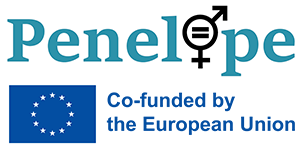

Could you please introduce yourself ?
My name is Sylvie Arnaud, I am HR Manager at Oxalis since March 2020. Previously, I was HR Development Manager at the Loire health insurance company (900 employees). I i have a Master II Degree Human Resources Management and Direction. In my experience in Oxalis, I am particularly proud of the signature of the first agreement with the representatives of Oxalis on gender equality with an ambitious action plan over 4 years.
Could you describe your organization in a few words?
Oxalis is a shared and mutualized company that belongs to its cooperators. For more than 20 years, we have been contributing to the creation of an economy in the service of people, by promoting a reasoned development that respects the environment and individuals. More than 250 women and men are part of Oxalis, sharing, adding and multiplying their skills, know-how and experience to develop and consolidate their economic activities, both individually and collectively. We pool the resources and services necessary for our activities, so that each person can devote themselves to their projects while being supported and protected.
Could you give us some facts and figures, or a description of the status-quo related to the situation of gender equality in your country/region and/or sector? What are the challenges encountered?
Gender equality is now a shared social concern, which is reflected in the strong orientations of the public authorities, particularly with regard to companies, with the obligation to formalize an agreement, an annual diagnosis accompanied by an action plan, and through various provisions of the French Labor Code.
Gender equality is also an important issue for the social and solidarity economy (SSE), whose values and actions aim to contribute to a “fairer and more sustainable” society. However, in the SSE, equality “has long remained a blind spot in the modes of organization”. This awareness is recent, even late, as the social purpose of these structures has paradoxically amplified this “invisibilization of inequalities”, whether they are associations, mutuals or cooperatives.
Could you please indicate what levers you see to address these challenges or to improve the situation you just described? Where do you see clusters playing a role in the process?
By developing the communication, the books, by freeing the word and by confronting the ideas and positions in order to awaken the individual and collective consciences.
Do companies in your network face recruitment difficulties? Would you say that efforts to create (more) gender equality lead to solutions to overcome these difficulties and why?
The specificities of the Cooperatives of Activities and Jobs make the recruitment process particular. The possible levers are essentially on the recruitment of the members of the mutualized team.
As the majority of the positions are oriented towards administrative functions, we receive few male applications, which creates essentially female teams. We do not have any difficulties with this lack of gender diversity but we would like to see more balance in the teams.
Do you think that companies of your cluster, sector/ecosystem, region are aware of gender equality rules? If so, do they know how to comply with these rules? What could be helpful (trainings, webinars, reference person in the company, etc)?
We may think that the Social and Solidarity Economy sector is more sensitive to the subject of gender, diversity and inclusion, but the fact is that within our structure, the awareness-raising and training initiatives put in place within the framework of our agreement show that there is a real interest in getting more training, even for the most informed public.
Would you say working on gender mainstreaming can bring solutions to other challenges you observe (retaining female HR in organisations by addressing issues such as equality in wages, work-life balance, fight against sexist acts..; populating rural areas, etc) ?
It seems to me that the fact of working on these subjects allows us to open the debate and the awareness on our practices, to review our ways of working together and to respect each other.
Could you please describe why gender equality is important for you personally and/or for your organization?
Personally, I am convinced that we still have a lot of work to do on inclusion and diversity in a broad sense. I personally advocate these values and the fact that I am HR allows me to carry them into my work organization.
It seems obvious to me that a CAE that wants to be inclusive should also carry these values.
How would you describe the added-value being a woman leading an organization ? What are your challenges/opportunities ?
It is difficult for me to describe the added value of a woman in positions of responsibility without going into positive discrimination. It seems to me, whatever her gender, that we all have assets, different approaches and postures according to her life and professional path. It is precisely the plurality and diversity of the genders that creates wealth.
What would be your closing word? Your main message on advancing gender equality approaches in companies/clusters/public authorities/governments?
Let’s continue this way of awakening consciences so that the question of gender is no longer under the seal of legislation but of an evidence.


